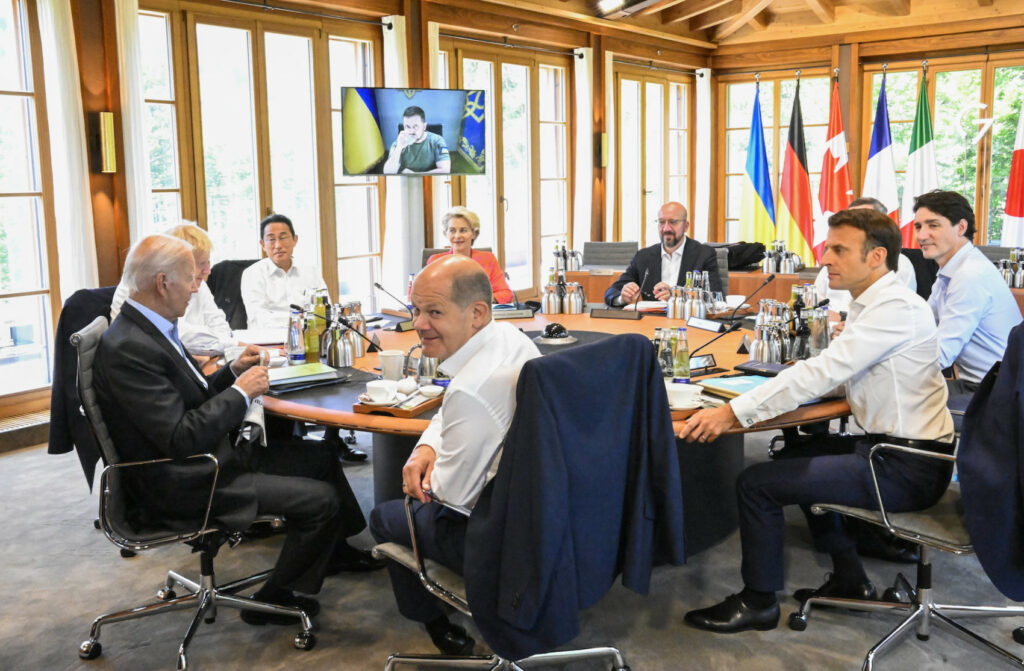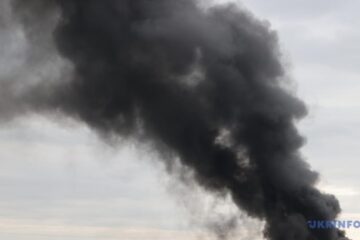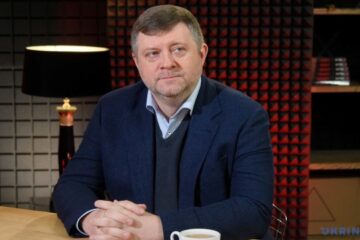
French President Emmanuel Macron told the G7 summit that Russia had one goal in mind – the surrender of Ukraine.
Leading economic powers conferred by video link with Ukrainian President Volodymyr Zelenskyy on Monday as they underscored their commitment to Ukraine for “as long as it takes” with plans to pursue a price cap on Russian oil, raise tariffs on Russian goods and impose other new sanctions.
In addition, the U.S. was preparing to announce the purchase of an advanced surface-to-air missile system for Kyiv to help Ukraine fight back against Vladimir Putin’s aggression.
The new aid and efforts by the Group of Seven leaders to punish Moscow come as Zelenskyy has openly worried that the West has become fatigued by the cost of a war that is contributing to soaring energy costs and price hikes on essential goods around the globe.
Zelenskyy told the leaders that now is not a time for negotiation with Russia because he needs to be in stronger position first, according to a senior French diplomat. The Ukrainian leader said “he will negotiate when he will be in a position to do so,” said the diplomat, who speaking under condition of anonymity in line with the French presidency’s customary practices.
“His goal is to end the war as quickly as possible and to get out of it in the best possible position, so that he can negotiate from a position of strength,” the diplomat said, adding that Zelenskyy told the summit leaders that he needs economic, financial and military support.
After hearing from Zelenskyy, the leaders pledged in a statement to support Ukraine “for as long as it takes.” They underlined their “unwavering commitment to support the government and people of Ukraine” in the battle for their country’s sovereignty and territorial integrity.
They said it is up to Ukraine to decide on a future peace settlement.
Leaders were finalizing the deal to seek a price cap during their three-day G7 summit in the German Alps. The details of how a price cap would work, as well as its impact on the Russian economy, were to be resolved by G7 finance ministers, according to a senior administration official who spoke on the condition of anonymity to preview announcements from the summit.
The largest democratic economies will also commit to raising tariffs on Russian imports to their countries, with the U.S. announcing new tariffs on 570 categories of goods, as well as use of sanctions to target Russia’s defense supply chains that support its effort to rearm during the war.
Biden is expected to soon announce the U.S. is purchasing NASAMS, a Norwegian-developed anti-aircraft system, to provide medium- to long-range defense, according to a person familiar with the matter, who spoke on the condition of anonymity. NASAMS is the same system used by the U.S. to protect the sensitive airspace around the White House and U.S. Capitol in Washington.
Additional aid includes more ammunition for Ukrainian artillery, as well as counter-battery radars, to support its efforts against the Russian assault in the Donbas, the person said. Biden is also announcing a $7.5 billion commitment to help Ukraine’s government meet its expenses, as part of a drawdown of the $40 billion military and economic aid package he signed into law last month.
The G7 leaders opened Monday’s session with a focus on Ukraine. They were later joined by the leaders of five democratic emerging economies – India, Indonesia, South Africa, Senegal and Argentina – for a discussion of climate change, energy and other issues.
German Chancellor Olaf Scholz, the summit host, said the G7 countries’ policies on Ukraine are “very much aligned,” and that they see the need to be both tough and cautious.
Scholz said after meeting with Canadian Prime Minister Justin Trudeau on Monday that “we are taking tough decisions, that we are also cautious, that we will help … Ukraine as much as possible but that we also avoid that there will be a big conflict between Russia and NATO.”
The chancellor added that “this is what is of essence — to be tough and thinking about the necessities of the time we are living in.”
Britain’s Boris Johnson said that under the circumstances the G7 has to “continue to help the Ukrainians to rebuild their economy, to get their grain out, to export their grain, and, of course, we have to help them to protect themselves. And that’s what we’re going to continue to do.”
Biden said Sunday that Russian President Vladimir Putin “has been counting on, from the beginning, that somehow NATO and the G7 would splinter, but we haven’t and we’re not going to.”
Biden hopes to use the trip to demonstrate unity of the coalition pressing to punish Russia for its invasion of Ukraine as much as he is urging allies to do even more. It’s an important moment for the U.S. president seeking to counter doubts about the West’s endurance as the war grinds into its fifth month.
Scholz said last week that he wants the G7 to discuss the outlines of a “Marshall plan for Ukraine,” referring to the U.S.-sponsored plan that helped revive European economies after World War II.
With the war still in progress and destruction mounting by the day, it’s unlikely to be a detailed plan at this stage. Scholz has said “rebuilding Ukraine will be a task for generations.”
The G7 already is committed to help finance Ukraine’s immediate needs. Finance ministers from the group last month agreed to provide $19.8 billion in economic aid to help Kyiv keep basic services functioning and prevent tight finances from hindering its defense against Russian forces.
A senior U.S. administration official, speaking on condition of anonymity to discuss private conversations between the G7 leaders, said the U.S. and Europe are aligned in their aims for a negotiated end to the conflict, even if their roles sometimes appear different.
Scholz and French President Emmanuel Macron have tried to facilitate that through active conversations with Putin and Zelenskyy, while also supplying weapons to Ukraine. The U.S. has largely cut off significant talks with Russia and aims to bolster Ukraine’s battlefield capacity as much as possible so that its eventual position at the negotiating table is stronger.
The endurance of the tough sanctions on Russia may ultimately come down to whether the G-7 and other leaders can identify ways to ease energy supply issues and skyrocketing prices once winter hits, as they seek to disengage from Russian sources of fuel.
The G7 meeting is sandwiched between a European Union summit last week that agreed to give Ukraine the status of a candidate for membership – kicking off a process that is likely to take years with no guarantee of success – and a summit of NATO leaders starting Tuesday in Madrid.
The leaders of the G7 – the U.S., Germany, France, the UK, Italy, Canada and Japan – may hope to make some progress in bringing their counterparts from their five guest countries closer to Western views on sanctions against Russia.
G7 leaders have called on China to put pressure on Russia to end its war against Ukraine and immediately withdraw its troops from Ukrainian territory. That’s according to a joint communique issued by the heads of state and government of the Group of Seven (G7) countries after the summit in Elmau (Germany) on June 26-28.”As Russia is waging its unjustifiable, unprovoked and illegal war against Ukraine, we call on China to press Russia to immediately comply with the legally binding order of the International Court of Justice of 16 March 2022 and to abide by the relevant resolutions of the UN General Assembly and stop its military aggression – and immediately and unconditionally withdraw its troops from Ukraine,” the communique said.
The Group of Seven also called for cooperation with China on shared global challenges and urged China to uphold its obligations under international law and to contribute to international security.
“We remind China of the need to uphold the principle of the UN Charter on peaceful settlement of disputes and to abstain from threats, coercion, intimidation measures or use of force,” the statement said.
Source: Russia can not, must not win war




